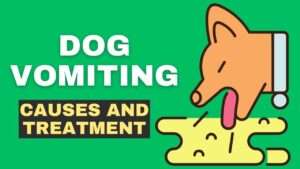Dogs, with their curious noses and ever-ready appetites, have a knack for sniffing out potential threats. As responsible pet owners, it’s crucial to scrutinize every tidbit before it finds its way into our furry friend’s mouth. Among the various foods that may catch their eye, leeks often pose a question mark. Are they safe for our canine companions to consume, or should we keep them far from reach? Let’s delve into this topic to uncover the truth behind whether dogs can eat leeks.
Contents Overview
Understanding Leeks
Leeks, with their long, slender stalks and mild onion-like flavor, are a common ingredient in many human dishes. They belong to the Allium genus, alongside onions, garlic, and chives. These vegetables are lauded for their culinary versatility and health benefits in human diets. However, when it comes to dogs, the picture becomes less clear.
Are Leeks Safe for Dogs?
The short answer is no, dogs should not eat leeks. While leeks contain certain nutrients like vitamins A and K, as well as fiber, they also harbor compounds that can be harmful to dogs. One such compound is thiosulfate, which can lead to a condition called hemolytic anemia in dogs. This condition occurs when the red blood cells rupture, leading to potentially severe health consequences.
Potential Risks of Feeding Leeks to Dogs
- Hemolytic Anemia: As mentioned earlier, the presence of thiosulfate in leeks can cause hemolytic anemia in dogs, a condition characterized by the destruction of red blood cells.
- Gastrointestinal Upset: Even small amounts of leeks can irritate a dog’s gastrointestinal tract, leading to symptoms such as vomiting, diarrhea, and abdominal pain.
- Toxicity: Leeks, along with other members of the Allium family, can be toxic to dogs. Ingesting large quantities may result in more severe symptoms, including weakness, lethargy, and even collapse.
What to Do If Your Dog Consumes Leeks
If you suspect that your dog has ingested leeks, it’s essential to monitor them closely for any signs of distress. Contact your veterinarian immediately for guidance, especially if your dog has consumed a significant amount of leeks or is exhibiting symptoms of toxicity. Prompt veterinary care is crucial to ensuring the best possible outcome for your furry friend.
Preventing Leek Toxicity in Dogs:
To prevent leek toxicity in dogs, it’s essential to keep all leek-containing foods out of reach of your furry friends. This includes raw leeks, cooked leeks, leek powder, and any dishes that contain leeks as an ingredient. Be mindful of foods that may contain hidden leeks, such as soups, stews, and casseroles.
Safe Alternatives for Your Dog
While leeks may be off the menu for your canine companion, there are plenty of safe and nutritious alternatives to incorporate into their diet. Consider offering them the following:
- Carrots: Crunchy and packed with vitamins, carrots make an excellent low-calorie snack for dogs.
- Green Beans: Rich in fiber and low in calories, green beans are a healthy option for dogs.
- Blueberries: These antioxidant-rich berries are a delicious and nutritious treat for dogs in moderation.
Bottom Line
In conclusion, while leeks may be a staple in human cuisine, they should not find their way into your dog’s food bowl. The potential risks associated with feeding leeks to dogs, including the risk of hemolytic anemia and gastrointestinal upset, outweigh any potential benefits. As responsible pet owners, we must prioritize our furry friend’s health and well-being by ensuring they consume only safe and suitable foods. When in doubt, always consult with your veterinarian for guidance tailored to your dog’s specific needs.




































+ There are no comments
Add yours